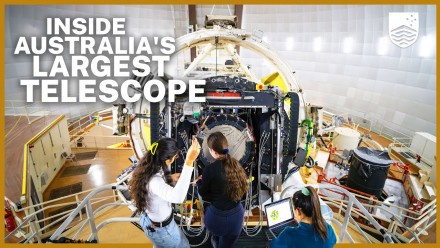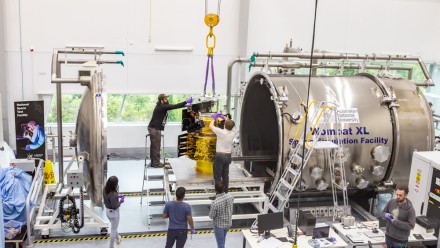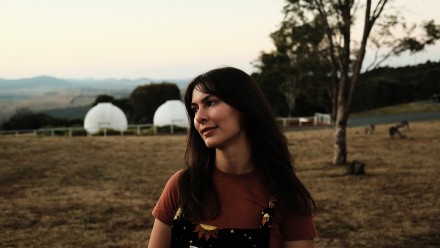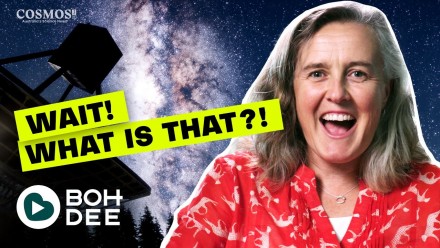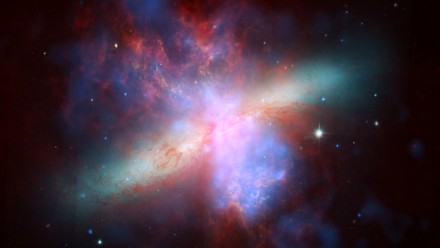Frédéric Vogt
What is your thesis topic or research interests?
Galaxy interactions (such as fly-by's, collisions or mergers) are known to be a key factor influencing galaxy evolution. Especially, such interactions have the potential to trigger strong star formation episodes, which can rapidly exhaust the gas reserves of a given galaxy. As of today, the detailed mechanisms leading to such starbursts episodes are however poorly understood. In my thesis, I use the WiFeS instrument (an optical Integral Field Spectrograph with a resolution R=7000 and field of view of 25 x 38 square arcseconds) on ANU 2.3m telescope at Siding Spring Observatory to observe strongly star forming and interacting galaxies in compact groups. It allows me to detect and characterize shocks sweeping through the galaxy as well as locate active star forming regions. Using complementary data sets highlighting the location of warm molecular hydrogen (in the infrared) and young stars (in the ultraviolet), I can link for the first time the different phases of star formation triggered by galaxy interactions, both on a spatial and temporal dimension.
Where have you come from to do this program and why did you choose ANU?
I grew up in Switzerland, and have a Master of Science in Physics from the Ecole Polytechnique Fédérale de Lausanne. I first came to ANU in 2010 to do my Master project as an exchange student, time during which I reconstructed the real 3D shape of two supernova remnants: N132D and 1E0102.2-7219.
What do you see yourself doing when you finish your study?
I am aiming for an academic career in Astrophysics. At the moment, my thoughts are directed towards Chile and their large telescopes, where I'd be keen to stay for a while as a postdoc. Yet, there's no clear plans yet ...
What has been the highlight of the program for you?
Science-wise, being able to operate the 2.3m telescope on my own to acquire data is a never ending thrill. Less-science-wise, working in Australia and having kangaroos in front of your office window is with no doubt a very enjoyable cliché.
What advice would you give to someone considering starting study in astronomy?
Go for it!





